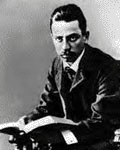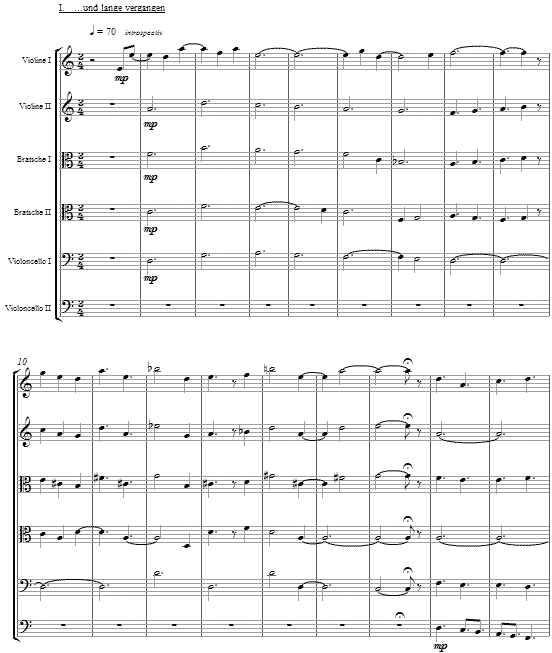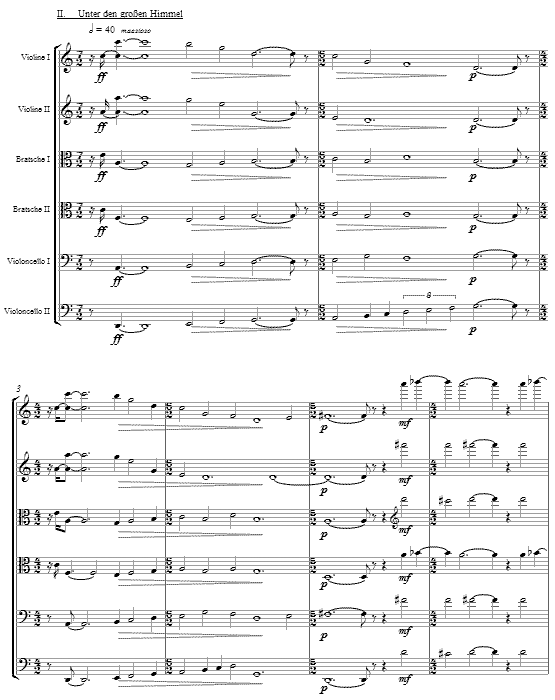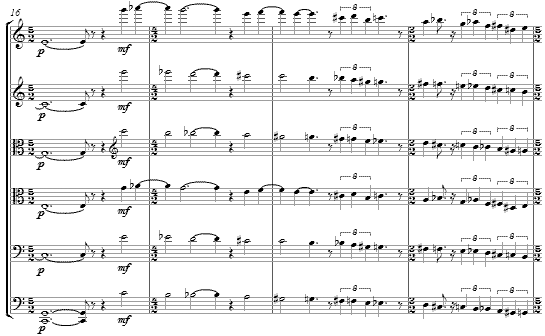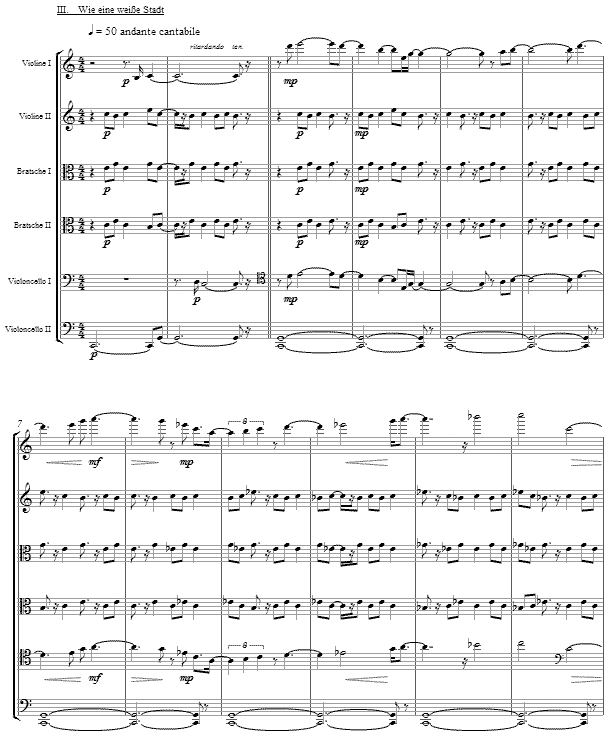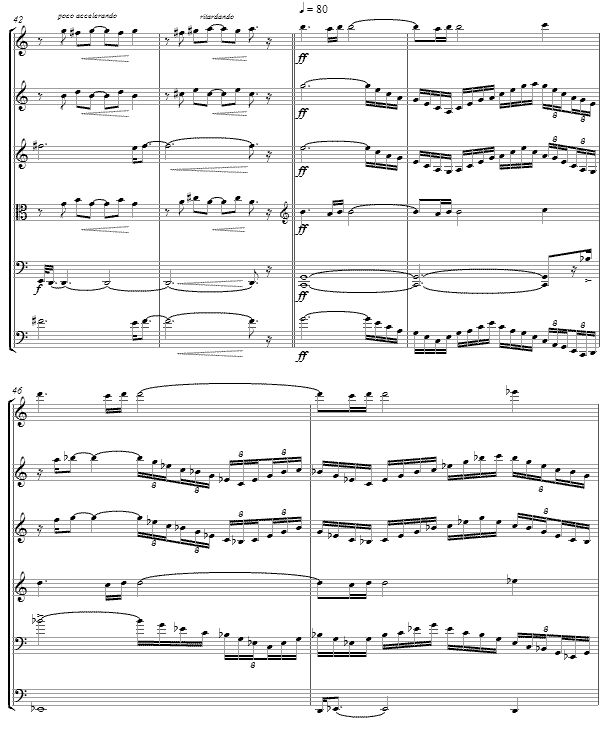Music and Texts of GARY BACHLUND
Vocal Music | Piano | Organ | Chamber Music | Orchestral | Articles and Commentary | Poems and Stories | Miscellany | FAQs
Klage - (2003)
After the poem, "Klage," of Rainer Maria Rilke
for string orchestra or string sextet
i. ...und lange vergangen
ii. Unter den großen Himmel
iii. Wie eine weiße Stadt[ circa 17 minutes ]
Rainer Maria Rilke
Klage
O wie ist alles fern
und lange vergangen.
Ich glauben, der Stern,
von welche mich Glanz empfangen,
ist seit Jahrtausenden tot.
Ich glaube, im Boot,
das vorüber führ,
hörte ich etwas banges sagen.
Im Hause hat eine Uhr
geschlagen . . .
In welchem Haus? . . .
Ich möchte aus meinem Herzen hinaus
unter den großen Himmel treten.
Ich möchten beten.
Und einer von allen Sternen
müßte wirklich noch sein.
Ich glaube, ich wüßte,
welcher allein
gedauert hat,—
welcher wie eine weiße Stadt
am Ende des Strahls in den Himmeln steht . . .
Oh how far off everything isand long gone by.
I believe the star
from which I receive its shining
is dead for thousands of years.
I believe that in the boat
which earlier went by
I heard something a little anxious.
In a house did a clock
strike the hour...
In which house?
I wish out of my heart
to step out under the wide heavens.
I wish to pray.
And one from the many stars
must still exist.
I believe, I wish
which one alone
had endured, --
which like a white city
at the end of radiance stands in the heavens...
The following score excerpts are taken from the sextet version of the work. The string orchestra version is barely more complex in its notation. Under-marked in the classical period style, it is for seasoned string players to find their best way through it, the score meant as a structure for the performers' musical individual interpretation without which all music is merely scribbles on a page.
The opening movement is gentle and lyric, developing a single theme in an extended song form. The melody is meant to express that longing for something passed. In a version for organ, I noted the words "in memoriam" on the score for reason of my own recollections and losses. "...and long gone by" is an adequate title and phrase to capture that sense of distance and time which separates each of us from that which we call "lost."
The second movement masses the strings into a broad statement. "Under the wide heavens" stands the poet's wishes to be outside himself, a part of the greater cosmos where perhaps he may lose himself. As with the notion of loss, one must contemplate the loss of self as well, thinking of stepping out from our own hearts into a time and place the Buddhist may call a "no thing-ness" in which the material is not an adequate definition of things; even our own frail and often lying language is incapable of telling of this moment of time and eternity.
The contrasting portion of the second movement is a counterpoint for three voices, each doubled at the interval of two octaves.
The last movement conjures something which is "like a white city" only found at the end of the radiant universe. There this something calls in answer to a yearning from the heart. Life beyond mere life, and experience which cannot be held in mere experience. Rilke wishes and believes "something" still exists, after all is said and done. The theme is doubled by first violin and first cello at the interval of two octaves.
The long-lined melody over a shifting yet simple accompaniment figure gives was to an appasionata, as all the voices become involved in a fast-flowing texture. The melody is again doubled by various voices in the progress of the movement, which ends with a slowing and softening of the themes into a quiet final moment fading to silence.
24 pages, circa 17' 00" - an MP3 demo of the work is here:
The full score is available as a free PDF download, though any major commercial performance or recording of the work is prohibited without prior arrangement with the composer. Click on the graphic below for this score for string sextet.
A setting for medium voice and piano of Rilke's wonderful poem Das Karussell is available in German. An organ version of the first movement is titled in English "...and long gone by."
